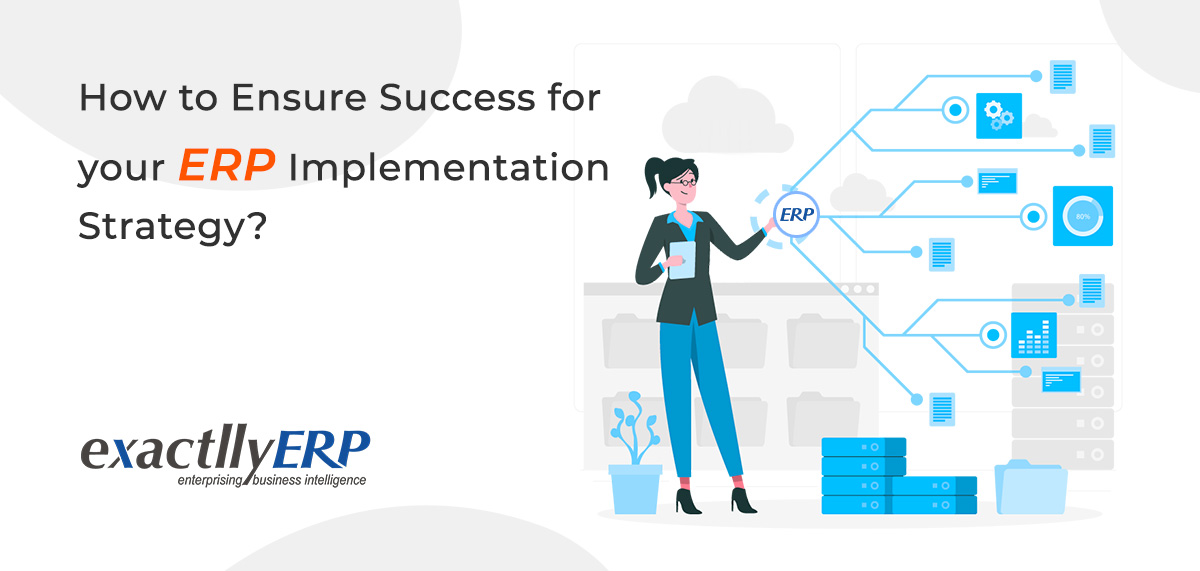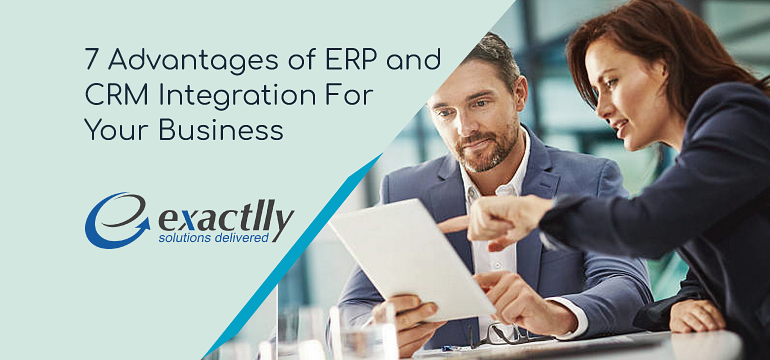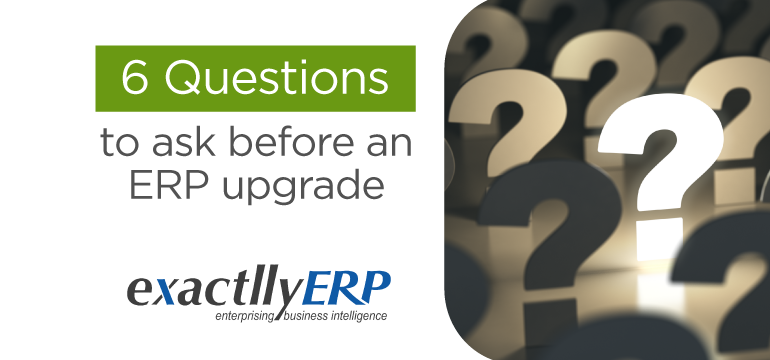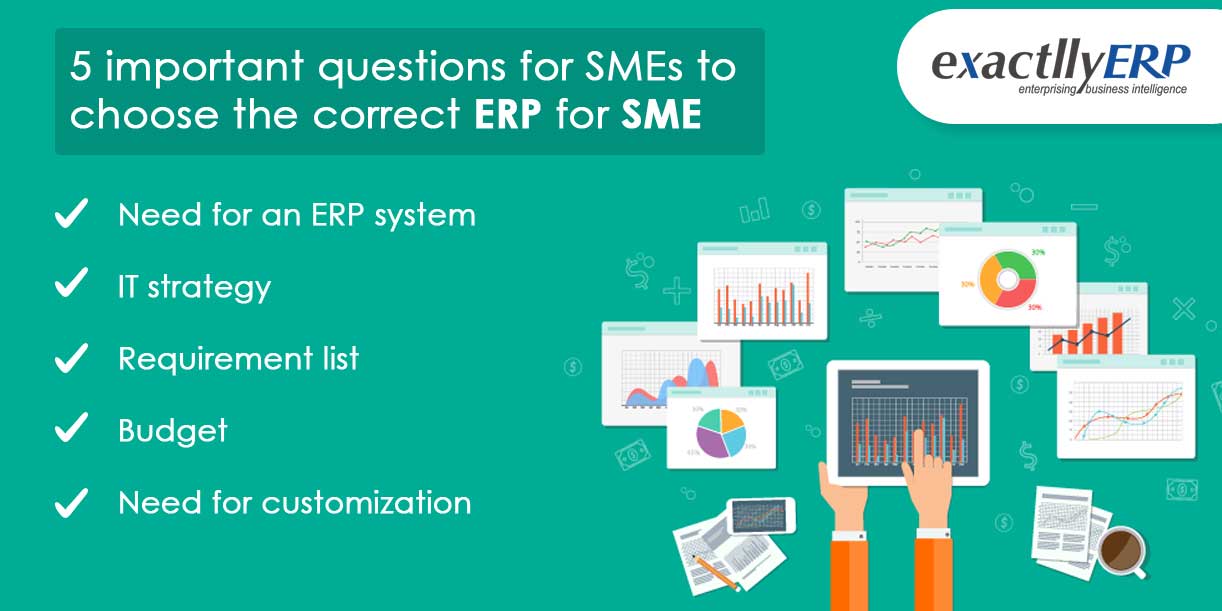Is It Time for Midmarket Firms to Switch ERP Systems?
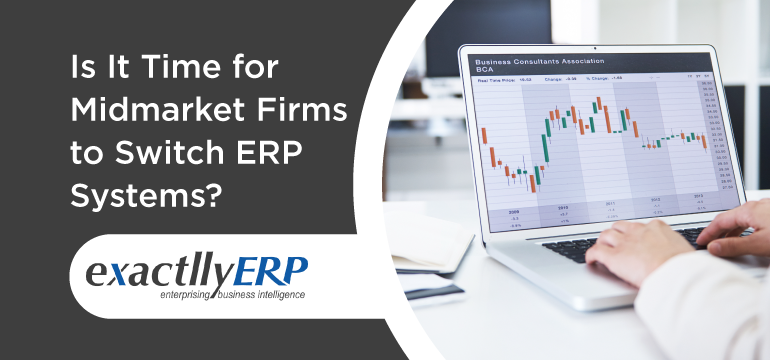
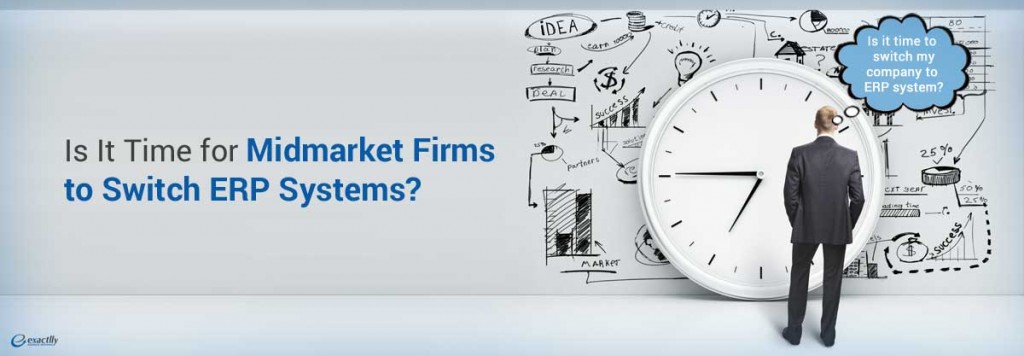 Midmarket firms often have complex operations. They have already automated their system of functioning through ERP implementation. Such firms have invested reasonable amount of money in ERP solutions but with growing pressure from rivals and increasing customer base, it has become imperative for them to evolve their solution.
Midmarket firms often have complex operations. They have already automated their system of functioning through ERP implementation. Such firms have invested reasonable amount of money in ERP solutions but with growing pressure from rivals and increasing customer base, it has become imperative for them to evolve their solution.
Since the economies have recovered to a large extent, it is the right time to expand. The cost cutting measures taken by the companies for a couple of years can now be given a break. There could not be any better time to invest in a new ERP solution.
Look at various options available
Though the idea of implementing a new solution sounds enticing, it is easier said than done. Switching an ERP system is not so easy owing to a lot of corresponding costs, time and energy associated with it. Some companies prefer to do so by overhauling their existing ERP system and adding new features, modules and functionalities to it.
But upgrading your existing system can become a nightmare because too much customization, adding API capabilities can be fairly expensive and the resulting capability of the solution may not be at par with the latest ERP solutions available in the market. In such a scenario, it is better to change the ERP vendor. You can do so by buying a new and advanced ERP solution by first documenting and assessing your current and future requirements.
Midmarket firms generally prefer to operate a hybrid model. Hybrid model is a combination of cloud-based and privately hosted server. While the routine operational data is stored on the cloud server, the sensitive customer-related information is stored on private server in-house. It is a way of playing safely and mitigating the risk factors. A completely in-house based ERP system is, on the other hand, expensive to maintain with a high liability factor. For midmarket firms, hybrid solutions are cost effective and they deliver an upgraded application interface.
Search for solid reasons
As an owner of a midmarket firm, you should look for a solid reason to upgrade your ERP system. The risk taking capability of midmarket firms is not as high as the large corporate have. So, they don’t afford to go wrong as project failure can be fatal for the organization. The new solution must be significantly better than the existing solution with an assured strong return on investment.
Though the company is already using an ERP system, switching a system is entirely a new project. The company should have an effective change management plan in place. It should be able to adjust to new upgrade. Most of the times, it is the employees who resist any drastic change in the company.
The senior staff members should be taken into picture and be fully convinced with the implementation of new solution. Furthermore, there is cost of training involved. The training requirements for the new system may be completely different. The new system will be accompanied by new roles and responsibilities for existing employees. The hiring requirements of the company will change as well.
What other factors to bear in mind?
Apart from that, the new ERP vendor will try to sell you as many modules as possible. The new solution may look overwhelming as compared to your existing solution. But before you buy the new solution, you should determine effectively the scope of the system and only buy the necessary modules. Once you are comfortable using the system over time, you can slowly enhance its capability. This way, there would not be any additional burden on your company.

